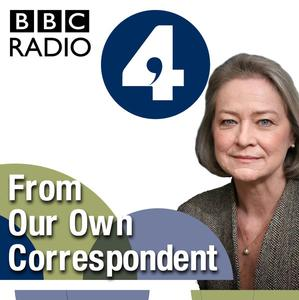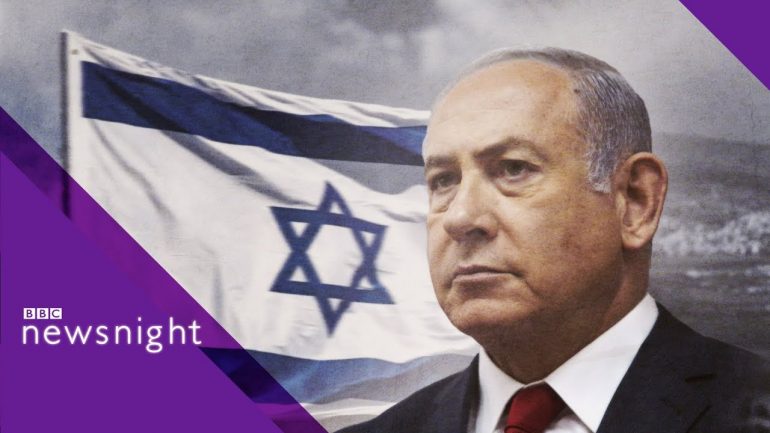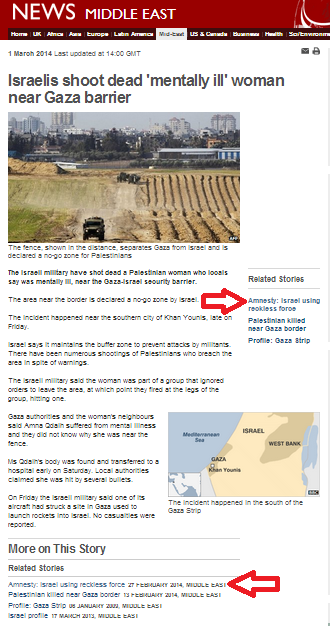Back in July the BBC published a number of items on different platforms which clearly communicated to audiences what they should think about the Nation State law passed by the Knesset that month after seven years of deliberation.
BBC News website framing of Israeli legislation
How BBC radio programmes misled by adding one letter and a plural
Inaccurate BBC WS radio portrayal of Israeli legislation
BBC producer breaches editorial guidelines on impartiality yet again
Two months later the BBC Jerusalem Bureau’s Tom Bateman returned to that topic in two reports – mixing in a partially told, unrelated story from an Israeli town with a name he could not be bothered to learn to pronounce properly.
On September 19th viewers of the BBC Two programme ‘Newsnight‘ saw a filmed report by Bateman.
On September 22nd listeners to ‘From Our Own Correspondent’ on BBC Radio 4 heard an audio version (from 06:24 here) of the same report which was introduced by presenter Kate Adie at the beginning of the programme as follows: [emphasis in italics in the original, emphasis in bold added]
Adie: “Today we’re in Israel on the hunt for the finest falafel while hearing what Arab and Jewish Israelis think of the controversial new law which characterises the country as principally a Jewish state.”
Adie’s introduction to the item itself included overt signposting.
Adie: “In July Israel’s parliament – the Knesset – narrowly voted in favour of a new Nation State law. It promotes Israel’s Jewish character and has been celebrated by religious nationalists, among other supporters, and not just within Israel itself but in the USA and Europe. It’s also sparked condemnation at home and internationally. Among its harshest critics have been the country’s nearly 2 million Arab-Israeli citizens who say it underlines their second class status, as Tom Bateman’s been finding out.”
Bateman’s report began in a falafel shop in Afula and listeners were told that he has “set out to gauge reactions to one of Israel’s most controversial new laws” before Bateman introduced his linkage of a local story to his main agenda.
Bateman: “My lunch companion wants to tell me about that. This is the world’s only Jewish state says Ilan Vaknin, a local lawyer turned mayoral candidate. Israel is surrounded by Arab nations and needs protecting, he asserts. He supports the new Nation State law. The legislation is an emblem for the Israeli Right, championed by Benjamin Netanyahu – a prime minister with an eye on elections next year, trying not to be outflanked by more hardline nationalists in his coalition.”
Bateman went on to give a particular view of the legislation.
Bateman: “The single-page law is stacked with symbols of Jewish sovereignty. It states that Jews have the unique right to national self-determination in Israel. That what it calls Jewish settlement is a national value. That Hebrew is the state’s official language – a statement seen as downgrading Arabic. But what of the central complaint from the law’s many critics, I ask, that it shreds Israel’s founding pledge of equality for all the inhabitants regardless of their religion or race?”
Given that account, uninformed listeners could of course be forgiven for reaching the conclusion that Jewish self-determination in Israel is an innovation that first appeared in the Nation State law. What Bateman refers to as “Israel’s founding pledge” is of course the Declaration of Independence which does indeed pledge “equality of social and political rights to all its inhabitants irrespective of religion, race or sex” but also – he refrains from clarifying – clearly defines Israel as “a Jewish state”.
Bateman continued:
Bateman: “Ilan Vaknin says that the Jewish people in Israel must safeguard their land. There has certainly been a struggle among the people of Afula. When 48 Arab-Israeli families tried to buy plots of land on the edge of this Jewish majority town, there were protests by Jewish residents. Mr Vaknin acted for those who wanted to stop the sales. He claimed the Arab families had illegally coordinated bids. The courts ultimately threw out much of that argument and most of the sales went ahead. Many such land disputes elsewhere have not always gone the way of Arab citizens. Afula’s story seemed to echo a desire in the Nation State law to assert Jewish identity.”
Presuming to tell audiences what Israel “is supposed to stand for”, in his filmed report Bateman described the same story thus:
Bateman: “An empty space to be filled – but by whom? There has been a struggle among the people of Afula. What should this town in northern Israel look like? Who should live here? From whose past should it seek its character? Afula isn’t a story of troops and teargas filling the foreign news but a less visible confrontation between Jews and Arabs that goes to the heart of what the State of Israel is supposed to stand for. Ilan Vaknin wants to be the mayor. The lawyer told me how he tried to stop the sale of land to nearly 50 Arab families in this majority Jewish town. The dispute, which started well before the row over Israel’s new Nation State law, provides an example of the tensions that led to the law’s drafting and why its supporters think Israel’s Jewish character needs protecting. […] He [Vaknin] fought the sale of this land to Arab-Israeli families, saying they illegally coordinated bids But, after two years, Israel’s High Court allowed most of the sales to go ahead.”
The only Israeli politician mentioned by Bateman in these two reports is the current prime minister and so BBC audiences could be forgiven for concluding that it was he who proposed the Nation State law. In fact, the legislation was originally proposed in 2011 by Avi Dichter – who was at the time a member of the Kadima party – together with 39 other MKs. In contrast to the impression given by Bateman, the Afula building plots story began in late 2015.
While some of those who demonstrated against the sale of plots to 48 families from Arab villages in the district may have had racist motives, there are relevant parts of the story that Bateman did not bother to tell BBC audiences – not least the fact that the full complement of tenders in the proposed new neighbourhood was won by Arab applicants.
“The protesters claimed that the winning tender applicants may have coordinated their bids to ensure the neighborhood is populated mainly by Arab residents. They also charged that the tenders were poorly publicized within the city, and only announced in two local newspapers.
Many of the protesters have previously expressed their opposition to having an all-Arab neighborhood in the city.
The tender was run by the Israel Land Administration, which accepted bids on almost 50 plots for homes in a planned community next to the Afula Illit neighborhood. The results, published last month, showed that none of the plots had been won by current residents of Afula and all had been awarded to residents of Arab villages in the area.”
In April 2016 the Nazareth District Court revoked the tenders.
“Court president Justice Avraham Avraham said in his decision that the 48 Arab families violated housing tender rules by coordinating their bids on several of the 50 lots for homes in a planned neighborhood next to the Afula Illit neighborhood in an effort to fix prices for the homes.
“The coordination between bidders severely damages the principle of equality,” Avraham said in his decision. “The bidders joined forces to coordinate their proposed prices in an effort to unfairly divide the market among themselves.””
In August 2017 the High Court found that while a bidding group which had won ten of the 27 available plots had indeed coordinated bids, the other applicants had not. The court ruled that, rather than cancelling all the tenders as the Nazareth court had ruled, only the tenders of those shown to have coordinated bids would be cancelled.
While those parts of the story are missing from Bateman’s account, he did make sure to tell his radio audience of statements made by another interviewee – Ghayadad Zoabi.
Bateman: “She says when Jewish protests took place against families like hers buying plots in Afula the sense of division felt overwhelming. She worries for her children who she fears have harder days to come. As long as the Right-wing controls Israel, she claims, it is heading for fanaticism. She believes the Nation State law sends a message to people like her that they are citizens second to Jews.”
And that of course is the agenda behind Bateman’s sudden interest in a local story that the BBC has ignored for nearly three years. Despite the fact that Arab-Israelis won tenders organised by a government agency and the 63% of bidders who were shown not to have coordinated bids had their tenders upheld in Israel’s High Court, The BBC’s Jerusalem correspondent still has a tale of “fanaticism” to tell about just one of the 22% of the world’s countries – including the UK – that have a religion enshrined in their constitution or basic law.





